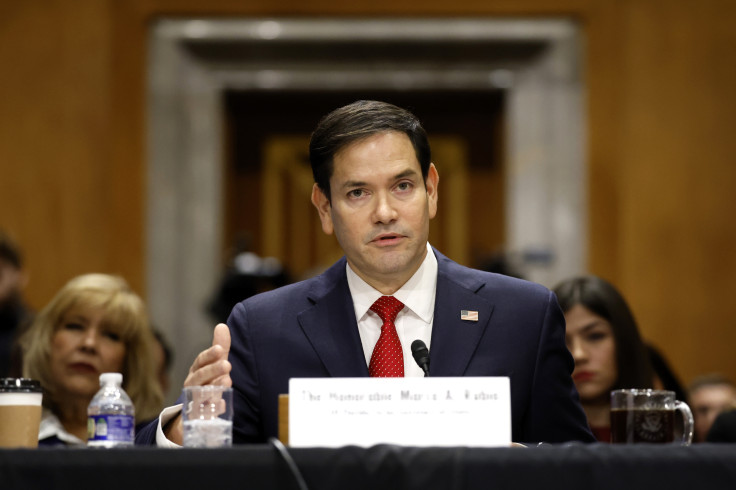
El Salvador has reached an agreement with the United States to accept deportees of any nationality, including violent criminals, a deal that has sparked concerns among human rights organizations and critics.
The deal, which marks a significant shift in immigration and criminal justice policy, was announced by U.S. Secretary of State Marco Rubio after a meeting with Salvadoran President Nayib Bukele on Monday. The announcement comes as Rubio tours several Central American countries to garner regional support for the Trump administration's immigration policy.
In an unprecedented move, the agreement specifies that El Salvador will continue to accept Salvadoran citizens deported from the U.S. after illegally entering the country.
Additionally, the Central American republic will also house foreign nationals, including criminals from notorious gangs such as MS-13 and Tren de Aragua, the two transnational gangs with members from El Salvador and Venezuela, as part of the deportation process.
"In an act of extraordinary friendship to our country ... (El Salvador) has agreed to the most unprecedented and extraordinary migratory agreement anywhere in the world," CNN quoted Rubio as saying.
Rubio confirmed that the deal includes an offer from Bukele to house dangerous criminals who are U.S. citizens or legal residents, within Salvadoran prisons.
Under the agreement, El Salvador will house prisoners for a relatively low fee, potentially providing a significant source of revenue to support the country's prison system.
"We are willing to take in only convicted criminals (including convicted U.S. citizens) into our mega-prison (CECOT) in exchange for a fee," Bukele posted on X about the agreement: "The fee would be relatively low for the U.S. but significant for us, making our entire prison system sustainable."
Critics Raise Concerns
The announcement of the deal was met with immediate criticism from scholars and human rights organizations, who have raised alarms about its potential impact on the rule of law and the protection of human rights in El Salvador.
Mneesha Gellman, an international politics expert at Emerson College, expressed concerns about the deal, calling it an "unprecedented proposal" that seems to be a transactional relationship between two populist, authoritarian leaders.
"The US is essentially proposing to send people to a country that is not the country of origin nor is it necessarily the country that they passed through," Gellman said. "It's not rooted in any sort of legal provision and likely violates a number of international laws relating to the rights of migrants."
One of the most controversial aspects of the deal is the broad scope under which El Salvador could accept deported criminals. The country's existing legal framework, especially following the state of emergency declared in 2022, permits authorities to detain individuals based on suspicion of gang ties, raising concerns that innocent people may be wrongfully detained.
El Salvador's incarceration rate, the highest in the world, has been a source of concern for rights advocates who believe that the country's approach to security may be unjustly sweeping up large numbers of innocent people.
Amnesty International and other human rights organizations have warned that over 80,000 people incarcerated in El Salvador's prisons under the state of emergency might be innocent.
Strategic Alliance In Managing Migration
The United States views El Salvador as an important ally in addressing migration issues in Central America. Last October, the two countries signed a Customs Mutual Assistance Agreement, strengthening their border security cooperation and trade, reports voanews.com.
Once one of the top three countries of origin for nationals detained at the U.S. southern border, El Salvador no longer ranks among the top 10 for undocumented migrants.




